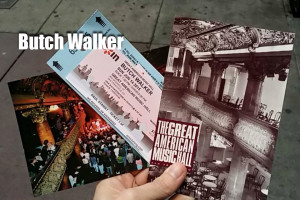Surrounded By Loneliness
9 min readWe live in strange times. While we have more ways and opportunities to communicate than ever before, we are more lonely and less communal than ever before. The technologies that promise closeness instead drive us further from one another. We live in over-crowded and polluted cities — often far away from our families — where we do not even know our neighbors.
We favor pseudo-community over real community. We instant message instead of converse. We date online instead of in person. Instead of enjoying the natural (conversation, family, marriage, community, land), we are dependent on the mechanical (computers, drugs, telephones, cars, corporations).
We are surrounded by lonely, unhappy, and depressed people. The drug industry continues to grow as more and more people turn to anti-depressants and other drugs to solve their loneliness and despondency. In the past, people turned to family, friends, community, and church. But we have willingly cut ourselves away from all these things: families hardly talk; friendships are shallow; community interaction is outdated; church attendance continues to decline.
Generally, we prefer to avoid those around us — unless it is to wave a finger at another vehicle. We have an entire range of entertainments ready to distract and isolate ourselves at the first sign of boredom: personal mp3 players, PDAs, portable video games, portable movie players and, of course, our ever-present (and ever-ringing) cell phones.
Two Problems: Real Community and Quality Isolation
I want to highlight two problems with our culture. The first is that we have little real communal interaction. The second is that we have little quality isolation. A good life needs a healthy balance of communion and isolation. When these are not in balance, both community and inner life suffers. We have replaced true community with virtual interaction, and true isolation with distraction. What we need is a revival of both true community and true isolation.
Community is an essential part of life. “Our lives are always rooted in a natural and cultural community,” says Norman Wirzba, “so that to cut ourselves off from these roots, whether that be in the name of progress or human liberation, is to ensure the eventual withering and then death of life.”1 Young people suffer from this the most. Sadly, many of their closest relationships take place online with others far from their locality. They are not taught the value and importance of community. They do not know the history of their families or land, and therefore never have an understanding of their roots and are doomed to repeat past mistakes. When they graduate high school, they often attend college far away from family and then take a job even further away. They are never rooted in a place for long, as they jump from job to job and house to house. Of course, it is not only the young. Even adults are replacing true community with television, chat rooms, online communities and relational video games.
Like community, isolation from others is a healthy activity that should be practiced frequently. Unfortunately, this is not the case. The isolation we do experience is usually a time of boredom to fill with distraction and entertainment instead of being a quiet time to think, read, and pray. These activities are impaired when music, cell phones, and other gadgets distract us. Yet we cannot seem to leave them behind. The truth is, we must always be entertained. We do not want to be left alone with our thoughts, for fear of what that may bring. Blaise Pascal (1623 — 1662) made this observation centuries ago, and it is worth quoting at length:
I have often said that the sole cause of a man’s unhappiness is that he does not know how to stay quietly in his room…. The only good thing for men therefore is to be diverted from thinking of what they are, either by some occupation which takes their mind off it, or by some novel and agreeable passion which keeps them busy, like gambling, hunting, some absorbing show, in short by what is called diversion.
That is why gaming and feminine society, war and high office are so popular. It is not that they really bring happiness, nor that anyone imagines that true bliss comes from possessing the money to be won at gaming or the hare that is hunted: no one would take it as a gift. What people want is not the easy peaceful life that allows us to think of our unhappy condition, nor the dangers of war, nor the burdens of office, but the agitation that takes our mind off it and diverts us. That is why we prefer the hunt to the capture.
That is why men are so fond of the hustle and bustle; that is why prison is such a fearful punishment; that is why the pleasures of solitude are so incomprehensible. That, in fact, is the main joy of being a king, because people are continually trying to divert him and procure him every kind of pleasure. A king is surrounded by people whose only thought is to divert him and stop him thinking about himself, because, king though he is, he becomes unhappy as soon as he thinks about himself.2
Silence is not merely the absence of noise; it is being laid bare before our conscience and thoughts. We see who we really are, and we don’t like it. The fact is, we never think about what really matters in life. We never think about God. We are selfish, wasteful, have little self-control, do few good works. So we go to great lengths to distract ourselves so we do not have to be alone and condemned by our conscience.
What Can We Do?
Solving these problems will not be easy. It will come in many ways and through many movements. But I can guarantee the chief solutions will be personal. It will take millions of people who act on their convictions. To that end, I have a few practical suggestions.
To have a revival of community, we first need a revival in family. Wendell Berry makes this point in his essay “Think Little”:
A couple who make a good marriage, and raise healthy, morally competent children, are serving the world’s future more directly and surely than any political leader, though they never utter a public word.3
A good marriage is a faithful marriage. When we make a covenant in marriage, we need to keep our promise. Divorce should never be an option. Husbands, learn to love, lead, cherish, protect, and provide for your wives. Wives, learn to honor and submit to your husbands and learn how best to help them. Eat homemade meals as a family. When possible, live nearby other family members. Raise up God-fearing and educated children who will be a blessing not only to your family, but to neighbors and the world.
We also need a revival in place. Our culture is nomadic, always searching for a better home and better job. When we stay in a place, we learn how to best live there, take care of it, and build a household:
There seems to me a distinct connection between our nomadism (our “social mobility”) and the nearly universal disintegration of marriages and families…. [Marriage] is very much under the influence of things and people outside itself; that is, it must make a household, it must make a place for itself in the world and in the community. But with us, getting someplace always involves going somewhere. Every professional advance leads to a new place, a new house, a new neighborhood. Our marriages are always being cut off from what they have made…. The marriage becomes a sort of assembly-line product, made partly here and partly there, the whole of it never quite coming into view.4
There also needs to be a corresponding revival in church and private religion. A church is not only a place to worship – it is a place to worship and gather with your community. It is an ideal place to have fellowship, encourage one another, and learn the needs of others in order to help them. We also need a revival in private religion – personal commitment and belief in Jesus Christ as the God-man who bore our sins, rose again on the third day, and who is returning soon in judgment. If we had a revival of families, place, church, and private religion, we would go a long way to restoring a healthy community.
There are also a number of things we can do to cultivate quality isolation. Walking, for instance, is not only beneficial for our bodies, but also for our minds. There is something about walking quietly through the woods — or park if you live in a crowded city — that calms the mind and leads to introspection as well as contemplation about the world around us.
Reading is another activity that can help us appreciate and cherish silence, for reading requires silence. C.S. Lewis made this observation:
[The majority] sometimes combine [reading] with desultory conversation; often, with listening to the radio. But literary people are always looking for leisure and silence in which to read and do so with their whole attention. When they are denied such attentive and undisturbed reading even for a few days they feel impoverished.5
Good readers do not enjoy reading in noisy places, and certainly do not listen to music, watch TV, or have conversations while they read. To do so is an injustice to the work in their hands. Serious reading is active reading, requiring all of our concentration and mental faculties – anything less shows a disrespect for the author and the activity of reading, just as failing to listen to a person with whom one converses shows disrespect for the speaker and the activity of conversation.
Another activity that encourages silence is prayer. Jesus says, “But when you pray, go into your room and shut the door and pray to your Father who is in secret. And your Father who sees in secret will reward you” (Matthew 6:6). We should cultivate silence when we pray. Not only does it show reverence and respect, but it also prepares us to listen.
Few of us pray as we ought. And few of us think as we ought. Thinking deeply about something requires silence. Many of us rarely think about something for an extended period of time — we have opinions on all kinds of things, but most of them come from a very shallow knowledge of facts, usually gained from the shallow, entertaining medium of television. The question is, do we make time to think? Pray? Read? Silence is important for all these disciplines.
Doing these things, of course, will not solve all our communal, spiritual, and intellectual problems, but it is a start. Entertainment can be fun and even healthy when done in moderation. However, when we over-indulge, we do ourselves a disservice. So I encourage you to make time to be alone with your thoughts and make time to spend quality time with friends and family.
Next time you take a walk, leave the tunes behind. Instead, look around and take in the beauty of the natural world without a personal music soundtrack. Take time to curl up with a good book, and then discuss it with friends. Or, if you don’t have bookish friends, join a book club. Spend time each day in prayer. Eat home-cooked meals with friends and family. Instead of filling yourself with a barrage of “the daily news,” take time to think about issues that actually affect your life. In doing these things, we will begin to slow down, enjoy life, and think about what is really important: religion, family, friends, and local community.
by Joshua Sowin
1 Wirzba, Norman. “Introduction” in The Art of the Commonplace: The Agrarian Essays of Wendell Berry (Washington, D.C.: Counterpoint, 2002), p. xv.
2 Pascal, Blaise. Pensées, in Christianity for Modern Pagans by Peter Kreeft (San Francisco: Ignatius, 1993), pp. 172-173.
3 Berry, Wendell. “Think Little” in The Art of the Commonplace: The Agrarian Essays of Wendell Berry (Washington, D.C.: Counterpoint, 2002), p. 87.
4 Berry, Wendell. “Discipline and Hope” in A Continuous Harmony: Essays Cultural and Agricultural (Washington, D.C.: Shoemaker & Hoard, 1972), pp. 155-156.
5 Lewis, C.S. An Experiment in Criticism (Cambridge: Cambridge University Press, 2004) Originally published in 1961, p. 3.






